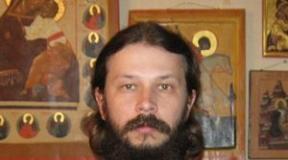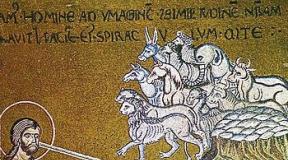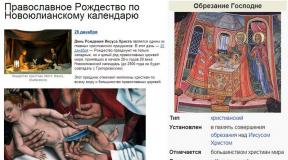The meaning of life as a philosophical problem. Abstract: Problems of the meaning of life
Introduction
In the life of every normal person, a moment will come sooner or later when he wonders on the limb of his individual existence. A person is the only creature that is aware of his mortality and can make it a subject of reflection. But the inevitability of her own death is perceived by a person by no means as an abstract truth, but causes the strongest emotional shock, affects the depths of his inner world.
The first reaction following the awareness of its mortality may be a sense of hopelessness, and confusion, even panic. Overcoming this feeling, man, however, the rest of life exists, burdened by knowledge about the coming one's own death; Moreover, this is knowledge, although in most life situations it lies in the hidden depths of consciousness, it becomes nevertheless fundamental in the subsequent spiritual development of a person. The presence of such knowledge in the spiritual experience of a person is largely and explained by the acuity with which the question of the meaning and purpose of life arises.
In my abstract, I will try to answer the following questions: what is the meaning and purpose of life? How much live a person? Why and in the name of what to live?
The problem of the meaning and purpose of life
The question made in the title of this chapter is the most significant in all the problems of philosophical anthropology. Despite the abundance of all sorts of statements on this subject of outstanding philosophers and thinkers, sometimes very unusual and paradoxical, we, unfortunately, do not have any clear and clear idea of \u200b\u200bthe purpose and sense of human life. And it's not by chance, for it is simply impossible to answer equally satisfactory for all people. Different people adhere to the various values \u200b\u200bof life, unequal ideological installations, they set themselves sometimes directly opposite goals. In such conditions, it would be naive to try to prove and defend a single understanding of the purpose and meaning of life for the whole society.
In the history of philosophical and religious thought among many attempts to solve this problem, you can allocate in a generalized form of at least four answers to the question:
- - The goal and the meaning of life consists in the desire to achieve the greatest pleasure (happiness, freedom, equality, material well-being, etc.) during the period of the earth's existence;
- - the meaning and purpose of life concluded in the desire to develop a good will to fulfill moral debt;
- - the meaning and purpose of life - in the development of the physical and spiritual qualities of a person and in the desire to make the greatest contribution to the achievement of a historical goal;
- - And finally, the philosophical and religious doctrine on the meaning of life and its goal as a striving for the "conviction" of the Holy Spirit, to the spirituality of all earthly life, to prepare for the blissful life "in the righteous villages", in the kingdom of heaven.
We will get acquainted with each of these teachings about the meaning and purpose of life. One of the most common teachings on this score is the so-called hedonism (from gr. Hedonie - pleasure). His founders are the ancient Greek philosophers and moralists Aristipp (435-360 to R. H.) and Epicur (342-270). Aristipp argued that every pleasure is bodily and spiritual is a blessing for a person and should be assessed positively, and displeasure is badly bad. The stronger the pleasure, the more desirable it is. As for the epicura, his ethical doctrine of the goal and sense of life became nominative. Epicur said that all living beings are striving for pleasure. A man seeks pleasure. However, unlike other living beings, a person receives not only bodily, sensual pleasures, but also spiritual, and the spiritual pleasures of Epicur put above bodily.
A peculiar type of hedonism is the so-called utilitarianism (from Lat. Utilities - use). The theory of utilitarianism was developed mainly by Bentam's English philosophers (1748-1832) and D. Millem (1806-1873). Bentham after the epicurus argued that a person in his life seeks to pleasure and avoids suffering. Achieving pleasure is, at the same time, and the criterion of human behavior and actions. Pleasures are always useful, and displeasures and suffering are harmful, they are useless. The test criteria, according to Bentam, makes it even mathematically calculated the specific type of pleasure or displeasure. By drawing up the balance of pleasures and disadvantages, we can conclude what our action will be good, and what kind of act is bad. At the same time, if the number of pleasures exceeds the number of suffering, the act is good and correct, and vice versa. Here is a sample of such a quantitative counting regarding intoxication made by the Bentham itself. He claims to prove that intoxication in itself is a bad thing, it is impossible. To its assessment, you need to make a balance of pleasures and displeasures from intoxication and on the basis of it to make the appropriate conclusion. In the moral column "Profit" all positive moments of intoxication are recorded. In the column, "Losses" have to write down all negative points. The calculation shows that negative moments, such as the unpleasant state of the spirit and painful sensations in the body, the loss of time and money, suffering from our loved ones - Mothers, wives, the child - the risk of punishment and remorse of conscience, outweigh positive and therefore intoxication: Acknowledged for a person.
D. S. Mill, who gave the very name "utilitarianism", also proceeded in his explanation of the goal of human life from the principle of utility or greatest happiness. Utilitarism, wrote Mill, claims that "actions are good if they contribute to happiness, bad if they make a person unhappy." At the same time, fortunate is understood as pleasure, and under the misfortune - suffering. Pleasure is the only goal that is desirable by itself. In order not to be accused of extreme egoism of his teachings, Mill explained that a person should strive not only to personal happiness, but fortunately and the pleasure of others. However, unlike Bentam, which believed that a person is striving for happiness of others because it contributes to an increase in his own happiness, Mill argued that this is due to a person inherent in a sense of community, unity with the neighbors.
The essential modification of utilitarianism is the teaching of the city of Spencer (1820-1903). Spencer believed that no philosophical school could deny that the purpose of human behavior is pleasure or happiness. Happiness is the highest goal, for it is characteristic of the highest forms of life. Differences of his teaching from Mill's views he expressed in his letter to him as follows: "The item in which I disconnect from the utility doctrine, as it is usually understood, is not the goal to which we strive, but in the method you need to follow, To achieve this goal. I admit that happiness must be recognized the ultimate goal, but only I don't think it was the closest goal. "
A person seeks a named goal due to objective reasons - the laws of behavior that dictate it to act accordingly. Therefore, it is important to understand these laws. And they suggest that in order to achieve happiness, it is necessary to adapt to the social medium to the social medium, to the social body, thus developing their goals and objectives.
A lot of sharp and fair objections were expressed to the hedonism. The essence of these comments and objections is mainly the next. Utilities and hedonists argue that all living beings, and even more so people, everywhere and always strive for pleasure, fortunately. However, life experience shows that human actions are not at all determined by the reasons for the receipt of pleasure or displeasure due to the commission of such actions. Moreover, many people deliberately go to the commission of such actions that are obviously connected with severe labor, martyrdom and even a deadly danger to achieve the goals that are far from excellent benefit. Suffering and experiencing the greatest displeasures, these people are least thinking about their own happiness. They sacrifice them for the sake of achieving the well-being and prosperity of the Motherland, neighbor, etc. Therefore, we can say for the carriage: "You need to consider slander to humanity, if anyone thinks that a person is encouraged for heroic activities for pleasure." To this can be added: and not only heroic.
People are unequal, each person is unique. The fact that for one is pleasure, happiness, for another will be obvious displeasure and misfortune.
The argued and deep criticism of the hedonism gave Kant, showing that the happiness of the hedonists speak is a very uncertain concept. One person, happiness appears in one form, and the other sees it otherwise. The pleasures themselves are qualitatively different and cannot serve as the criterion of moral actions for all people to the same extent. Such a criterion should be universal and necessary moral law, which Cant called the categorical imperative. The ultimate goal of all our lives should be the desire to develop a good will. Only with its help you can achieve perfection, the fulfillment of moral debt, only a goodwill is able to fulfill the moral law of a categorical imperative. The desire for happiness can direct a person on a false path, toward evil. No one will deny that human qualities as the mind and courage are appreciated high and cause respect and admiration for others. But the mind and courage, if they are guided by an unkind will, can be: aimed at achieving an evil target, to commit depleting actions for a person. Only a goodwill can direct the mind and courage, like other high qualities of a person, good and good. The will of a person acts independently of external circumstances, it obeys the law that herself creates. The purpose of human life is to work out such a will, with which you can successfully fulfill the moral law. At the same time, a person should never act as a means to achieve the goal. "A person is not a means, but the goal" - this noble ethical principle, proclaimed by Kant, has gained deep respect for him all over the world. Only movement to the moral law and the following debt as the purpose of human life behavior, make a person's deeds with the appropriate destination.
The Kantian understanding of the moral actions, the goals and meaning of life is an outstanding achievement of global philosophical thought and has had the strongest influence on the entire subsequent move, especially in the sphere of ethical surveys. Fichte, Adler, Gusserl, Voltman and many other outstanding philosophers adhered to his views and developed further in relation to their philosophical constructions. Many researchers of the Kantian categorical imperative have seen a substantiation of universal moral requirements without reason. Of course, a lot of criticism, including Hegel and Marx, was heard to this exercise.
The main meaning of the hegelev criticism of the Kantian categorical imperative is reduced to the fact that it is "empty formalism", "a debt for the sake of duty", "eternal resources", etc. As for the criticism by Marxism categorical imperative, it is rather ideological. In his opinion, the moral law of Kant converts a person to passivity, the refusal of activities for its social status will level the class differences in society, leads from class struggle, serves the interests of the bourgeoisie, turns "financially motivated definitions of the will of the French bourgeoisie into pure self-determination of" free will " , will to ourselves and for yourself, human will, and made it in this way purely ideological definitions of concepts and moral postulates. "
There are many varieties of philosophical teachings on the meaning of human life as a struggle for certain social ideals, for the liberation of mankind from social oppression and operation. One of these varieties is the socio-philosophical teaching of Marxism-Leninism. Although Marxist philosophy put his taboos on the problem of the purpose and meaning of life, eliminated this topic from its philosophical and ideological repertoire on the basis of its "religious" character, but in fact she was somehow discussed as part of the Marxist theory under other headlines, for example, in themes: " Formation of a new person "," Personality and society "and in others. The Marxist concept of the meaning and purpose of life could be called Social-Hedonist. She took the idea of \u200b\u200ba man's desire for happiness, to pleasure (equality, fraternity, freedom, etc.), placed them in the future of human life on Earth as a goal to which all people should strive to strive for , by revolutionary struggle with existing procedures, establishing the dictatorship of the proletariat, liquidation of classes, the construction of socialism and communism.
This concept, tested in the practice of socialist construction in the USSR and in some other countries and forcibly imposed on the party and the state for decades, suffered a complete fiasco. Happiness turned out to be ghostly, instead of equality, there was a new division of people, instead of freedom - challenge and operation, instead of the established equality between a man and a woman, the realization of the idea of \u200b\u200bthe so-called Emancipation of a woman has an actual challenge, which led to many unpleasant phenomena in public and public life, Family-marital relations, in education and culture.
Now let's get acquainted with the religious (Christian) concept of the purpose and meaning of life. According to the Bible, the person was created in order to be in paradise in eternal communication with God, fulfilling his good will. But putting himself on a par with God, and his human will above the Divine, a man lost a genuine landmark in life and was forced to felt his face to see himself. As you chase for ghostly happiness and pleasures, the person's life has ever more and more depreciated and turned into hostility to all. But the Eternal Divine Will had to be fulfilled. God sent his son to the world - not to judge and condemn the world, but in order to save him (John III, 17; HN, 47). According to the teachings of Christ, people are called to improve their spirit, because a person lives not for death, but for eternal life in Christ and Christ. Living in Christ here on Earth, and fulfilling his commandments, a person can, like Jesus Christ, to overcome death and stay behind the coffin in eternal rest and enjoyment. Rev. Seraphim Sarovsky, the Great Russian Holy, expressed the meaning of human life in the following short words: "The true goal of life of our Christian is in the compassion of the Holy Spirit of God." The means of this is the post, vigil, prayer, alms and all other good funds.
The Christian philosophical doctrine of the goal and sense of life has repeatedly been crushing on the side of atheistic philosophers. You can, of course, doubt the truth of the religious understanding of the meaning of life, reject and prohibit it, as it was done quite recently in our country, but this teaching has penetrated deep into the consciousness of millions of people and torture him from there no criticism. Being an integral part of the worldview of millions of people on earth, this look at the goal and meaning, life has been providing at present, which determines the impact on the entire course of world history, and not just the lives of individual Christians.
LIFE AND DEATH. The problem of death and immortality
The mystery of human life, its essence and purpose is aggravated by no less mysterious and mysterious essence of death. All the great philosophers and outstanding thinkers, all major religious systems of death were considered as the central, from the decision of which the essence of the answers to all other issues of human existence depends. At the same time, philosophical views on the essence of death often almost completely coincided with religious understanding or even anticipated him. Of course, in the history of philosophy, we meet with such glances that the problem of death actually bypass the party or simply grind. However, this departure to the side of the problem or intentionally, her silence not only did not diminish its meanings, but, on the contrary, it emphasized its significance and topicality. Moreover, some philosophers, for example, Plato, believed that "those who are truly devoted to philosophy, are engaged in the essence of things, only one - dying and death." Philosophical reflections on death undoubtedly arose under the influence of death, as a transition to another state. Therefore, to separate the philosophical views on death from purely religious things would be completely hopeless.
Philosophical and religious views on death could be divided like this:
first, the views, in accordance with which death seems like separation of the soul with the body. At the same time, the body dies, turns into dust, and the soul, by virtue of his immortality, goes into another world in order to subsequently, in another person or even an animal;
secondly, philosophical and religious concepts, according to which death, there is also separation of the soul, with the body. At the same time, the body turns into the dust in the earth, and the soul is placed in one of the offices or paradise - heavenly dwelling, - if the deceased man led a decent life on earth, or in hell, if he committed heavy in the process of his earthly life, Especially mortal sins, not redeemed by God. Subsequently, after the Judgment Day, the dead acquires their former body, purified and transformed;
thirdly, philosophical materialistic views on death, as a natural completion of human life. As a result of death, the consciousness of a person will forever go out, for no soul in humans and can not be, dies and the body, turning into dust.
As already noted, early philosophical teachings on death arose under the influence of religious pagan ideas that the person does not die as a result of death, but he moves to a residence in the afterlife, which has its own orders, its own rules of stay, in some sense similar with earth.
The most fully, this point of view on death expressed an ancient Greek philosopher Plato in his famous Dialog "Fedon", written under the direct influence of conversations with his teacher Socrates on death a few hours before his death.
According to Plato, a person consists of an immortal soul and mortal body. At the birth of a man, the soul settles in his body and dwells in it until the end of the earthly life. The body is a dungeon, a prison, in which the immortal soul is concluded from which she craves to free. Death and there is a process of such a liberation, separating the soul from the body. For those who in their earthly life pay no more attention to the body, but for the soul, death is the greatest good, it is desirable for them. Those who do not care about their soul puts the soul of formidable danger, various disasters that she lies in Aida. After the death of the shower, accompanied by "Geniya", which was given to a person while his life is delivered to the court, where it is determined where it should be placed. Having spent a certain time in the place allotted for her, she returns to Earth to the land and is repeated again and again through long intervals. The views of the Buddhist philosophy on death and the afterlife of the soul, especially in the part of the resettlement of the souls, are echoed with this teaching of Plato. .
The second Christian point of view on the problem of death and afterlife is based on religious ideas about the meaning of death and immortality. Here is briefly the main positions in Orthodox interpretation.
According to this teaching, death is separating the soul with the body, as a result of which the soul remains alone, alone, and the body returns to the ground. Death entered the world thanks to a personary of a person who violated the commandments of the Lord. Death is unnatural and God did not take part in her creation, as he did not create an evil. Entering the person himself in the world, death became inevitable and even beneficial. Moreover, if at the fall, Adam remained, as was the immortal, then the evil would be an immortal and no hope for the salvation of people would not be.
Separated from the body, the soul goes to the spiritual kingdom or good angels (in paradise), or evil (in hell). The first forty days after the death of the soul, staying mainly on Earth and having acquainted with the underworld and paradise, is definitively determined in its location in one of these two opposite parts by their significance parts of the afterlime world. And in hell, and in paradise there are different in the degree of suffering or blessed blesses. Rev. Efrem Sirin shares the paradise into three parts: the lowest, intended for repentant Christians, the average for the righteous and higher for the winners. The same saint, referring to the Bible, speaks of various degrees of torment in the hell: the darkness of the pitch, geency of the fiery, gnashing, dust, Cherva, in a nonpressive, lake fire, tartar, fire is restless, underworld.
The originality of the Christian teaching about death and afterlife is that the so-called day day comes at the end of world history, the day of the terrible court comes. Alive and the dead will be presented before God and will be condemned finally: who is for eternal torments, and who for eternal bliss and the dead will enjoy in their former flesh, purified and transformed.
A few words about the views of materialist philosophers for death and afterlife. Since materialism denies the immortality of the soul, and its extreme form rejects the most concept of soul and spirit, they naturally deny the afterlife, as such. Death is considered as a natural end of human existence. Death is estimated as an ordinary, ordinary phenomenon and no tragedy in it is not seen.
The extreme form of such views is Marxist philosophical materialism. For more than seventy years, official Soviet philosophy has completely avoided this topic in every way, lasted it from his own problems, and when it was still necessary to say that, claimed that "for Marxist philosophy, which is based on the conviction in the impossibility of thinking transcendental being, problems death as an ontological problem does not exist. " The costs of such a relationship of the Marxist-Leninist philosophy to one of the most exciting and burning topics related directly to the human being, tragedly affected the spiritual appearance of the Soviet society as a whole and each of his member separately. There was an illusion about the immortality of the Soviet man, about the infinity of his life. The man stopped remembering his death and prepare for her, and when she was inevitably attacked, it covered not only the greatest fear and horror, but also the greatest malice at all and on all, including his neighbors. Generations of people who are excommunicated from the thought of death, left in a similar way, ridiculous and embittered.
But the one or another philosophical concept of death is connected not only with the problem of spiritual appearance - a person, with a worthy completion of his earthly life, but also with memory of the past, with the continuity of generations, and ultimately, with the peculiarities of the development of society.
Seventy-year-old Soviet experience has shown that the upbringing of people in the goggleless, atheistic spirit led to the massive obligation of their ancestors, to the destruction of cemeteries, blasphemy and abuse of graves, churches, archives, over dumb witnesses of the history of the people.
This sad experience was taught and an important lesson: philosophy can not only have a positive, creative, cognitive, cultural impact. It can at a certain stage indeed in full compliance with the principle expressed by Marx to turn out of the harmless contemplative-explanatory phenomenon of public life into the official philosophy of the state, becoming a formidable weapon of the destruction of the former society, its traditional lifestyle, perversion of genuine national oblasts, replacing them in wetting, Artificially made, and therefore lifeless and fragile.
The problem of death is directly related to the problem of the immortality of a person. Is it possible to talk about immortality if the universal law of death does not make exceptions for any of those living? All people are mortal - this is the truth is unconditional and absolute. However, this unconditional truth does not cancel and cannot cancel that undoubted fact that a person is characteristic of the irrelevant desire for immortality and, of course, to the theoretical substantiation of his real opportunity.
We have already seen that all religions of the world, as well as many philosophical systems proceed from the assumption of the afterlife of people, from the postulate that the person after death passes only in other, the spiritual state of his life, that not only the soul is immortal, but the body will be restored in Initial form.
A peculiar attempt to justify immortality is the philosophical constructions of the original Russian thinker and philosopher N. F. Fedorova, (1828-1903), the author of the wonderful book "The Philosophy of General Cause". According to Fedorov, if a person knows the nature of death, (and he is able to do it, and in the very near future), he must also master it, for death is not initial and certainly necessary. The human mind in the course of his penetration into the secret of death learns to resurrect the dead. "Death is a phenomenon, external for us, and therefore can be learned only inductively, while the resurrection is the natural nature of our response to this alien to us." For the universal business of the resurrection of the dead, you need to unite all alive, for to forget about all those who left life, it is impossible. This complicity of people in the deurrection should occur by regulating meteorological phenomena, the blind movements of the planets and the entire stellar system, its spirituals. Since all the world has a plow ancestors, it is necessary to collect scattered particles to recreate the bodies of the deceased. Through the development of science, the management of all molecules and the atoms of the world is achieved, so that "scattered collect, decomposed to connect, that is, to fold into the fathers' body." Thus, "knowledge of the substance and its strength restored past generations that can already recreate their body from elementary elements, populates worlds and destroy them.
Philosophers, adhering to materialistic and atheistic views, also do not deny immortality. They see him in those left after the death of a person affairs, in his contribution to the progressive development of society. The greater the person of a person who has left in a piggy bank of social values, for the benefit, say, socialism or communism, the case of the revolution, the immortal man. The more talented and ingeniously he, the less his oblivion, the greater the trace of he leaves the people's memory, in the historical memory of the coming humanity.
In essence, this reasoning is not about immortality as such, but about the memory of the dead on the basis of the material or spiritual values \u200b\u200bremained. In addition, the memory of people is transient, people who keep the memory of others themselves go away and gradually comes to complete oblivion.
Philosophy about the meaning of life, about the death and immortality of man
meaning life death christian
In solving this issue, Marxism proceeds primarily from the intrinsicness and integration of human life, which appears in it and not random (which it may be an individual), and not meaningless, since the individual, the person is considered not only by themselves, but also as part of the whole - human society. K. Marks still in their early works noted that "Individual is a public being. Therefore, every manifestation of his life is even if it does not act in the immediate form of a collective, performed jointly with other, manifestations of life, is a manifestation and approval of social life. "
From all other living beings, a person is characterized by the fact that throughout its individual life it never reaches the "goals" of the life of a generic, historical; In this sense, it is constantly not adequately implemented by the essence. He is not satisfied with the situation when, as Marx said, "life itself turns out to be only a means of life." Such dissatisfaction, unrealizability contains the motivating causes of creative activities that are not concluded in its immediate motifs (material, etc.). That is why the calling, appointment, the task of every person - to comprehensively develop all its abilities, make your personal contribution to the story, in the progress of society, its culture.
This is the meaning of life of a separate person, which it realizes through society, but in principle, the meaning of the life of society, humanity in general, which they implement, however, in historically ambiguous forms. The coincidence, the unity of personal and public, or rather, the measure of this unity, unequal at different stages of history and in different socio-economic formations, and determines the value of human life. This measure is thus not properlike or overnight, but dialectically unites the goals and meaning of the life of the person and society, and they may be in contradiction in socio-economic conditions, alienating a person, and more and more coincide in the process of becoming new, humane and democratic , society.
Such an understanding of the meaning and value of human life is relying, therefore, for the doctrine of the social essence of man. Any attempts to derive them from the sphere of biological errorshere, because the behavior of the individual is determined by social, socio-ethical and moral and humanistic factors that are its regulators. Well said about it L. N. Tolstoy: "A person can consider himself as an animal among animals living in today's day, he may consider himself and as a family member and as a member of society, the people living in centuries, maybe even must (because because To this, uncontrollably entails his mind) to consider itself as part of the entire infinite world living an infinite time. And therefore, a reasonable man was supposed to do and always did in relation to infinitely small life phenomena that could influence his actions, the fact that in mathematics is called integration, i.e., establish, except for the relationship to the nearest phenomena of life, its attitude to everything endless Time and space of the world, understanding him as one whole. " Stressing the meaning of "attitudes towards a whole", L. N. Tolstoy believed that it was from here that a person displays "leadership in his actions."
L. N. Tolstoy saw the meaning is not to live, knowing, "that life is stupid, played by me by a joke, and still live, wash, dress, dining, talking and even writing books. It was disgusting for me ... "he wrote. Tolstoy could not recognize the "nonsenselessness of life", as its meaning could not only see, when a person lives and acts only in order for the benefit to be one, so that all people and even creatures live and acted only to He was alone well ... ". To live like this, without worrying about the general good, in Tolstoy, can only "animal personality", which is not subject to the dedication of the mind. For such an animal life, alas, throughout the history of mankind, when the exploitative relations were dominated, most of the workers were doomed. We have to admit that in our society during the rule of the authoritarian-bureaucratic system such alienated forms of life were widespread. Their exit will require considerable time and serious multifaceted work on the restructuring of all spheres of society.
The ideas of Tolstoy and today are relevant, they have a huge impact on the moral world of a person, on how he decides for himself questions of death and immortality. It is not by chance that representatives of different philosophical systems and trends and directions are so often treated to them, including materialistic ones.
What attracts a modern man in them, the consciousness of which daily and is still saturated with the concepts and images arising under the influence of the scientific and technical revolution, gerontology, projects of radical restructuring of the nature of a person, an unlimited increase in his life expectancy, immortality? If you try to answer this question literally in a nutshell, you can say - the highest humanity, that is, the organic compound of thought with the feelings of the unique and endless personality with other people and humanity as a whole, which allows you to realize that the meaning of life is concluded Life itself, in her eternal movement as becoming the person himself.
The idea of \u200b\u200bthe inevitability of the human biological death, passing the red thread through all the work of L. N. Tolstoy, is inextricably linked with him with the statement of the moral, spiritual immortality of man. Death is terrible for those who "do not see how meaningless and deceased his personal lonely life, and who thinks he will not die ... I will die as well as everything ... But my life and death will make sense for me and for everyone. "
The moral meaning of life L. N. Tolstoy spreads to death, and therefore for him "a person died, but his attitude to the world continues to act on people, not even as in life, but a huge number of times stronger, and the action is as Razuness and loving increases and growing, like all living things, never stopping and not knowing interruptions. " Living to the good of others, a man, believes Tolstoy, "here, in this life already comes into a new attitude to the world, for which there is no death, and the establishment of which is the case of this life for all people."
In a few other aspect, another Russian thinker - V. S. Solovyov focuses in the understanding of the moral and philosophical meaning of human life. It will be summarized in how the question of the ratio of personality and society, their interests and goals is solved. According to Solovyov, "it is impossible to essentially oppose the person and society, it is impossible; That of these two is the goal and that only the tool. " Arguing the infinity of the human person as an axiom of moral philosophy, he protest both against individualism and against such supporters of collectivism, which, "seeing in the life of humanity only social masses, recognize the personality for an insignificant and transitional element of society, who has no own rights and with which can not be considered in the name of the so-called overall interest. " Obviously, V. S. Soloviev speaks here from the standpoint of moral and ethical humanism, criticizing all sorts of imaginary collectivism, feeling the dialectics in the relationship between the personality and society already open, however, and scientifically informed Marxism, but the remaining unknown Russian thinker, which is usually , very stereotypical ideas about socialism. It is impossible not to notice, however, that many ideas V. S. Solovyov are echoing with the Marxist teaching on the development of a person as a heotolyney, about the moral sense of human life as the process of improving its social essence and spiritual grounds.
How much live a person? HOW TO LIVE? In the name of what to live?
This approach allows in the new perspective, based on social and moral grounds, look at the problem of human life, the possibility of its extension. The extension of life can be put as some scientific and socially conscious goal, but then the question arises: why is it necessary for individuals and society? And from the point of view of purely humanistic, according to which the value of a long-term human life is self-evident, self-sufficient, and with social, taking into account the social significance as long as possible conservation of the developed human individuality, enriched with knowledge, life experience and wisdom, an increase in the normal social life expectancy due to restrictions And complete displacement in the future of pathological social aging seems to be a progressive process and in relation to individual individuals, and in relation to human society as a whole.
A business is a biological life expectancy of a person, that is, its species time, an evolutionary-genetically encoded and imposing individual alternation of lives as a condition for the existence of humanity. There are many new scientific issues facing biology, but they cannot also be considered in the separation from social and moral and humanistic, determined by the general solution of the problem relating to the essence and meaning of human life. In modern concepts concerning these problems, an idea is approved about the possibility and need to achieve a maximum of a species (biological) life expectancy of a person with the help of scientific methods. Now the main efforts of scientists are now sent. In connection with the consideration of a variety of artificial ways to extend the life (transplantation, Bionics technology, cryobiology, genetic engineering, etc.) It is even said that humanity stands "on the threshold of a new era, when medicine will turn the SAPIEPS noto in Noto LapgeVov - ultra-graders when men And women in mature years will fully retain both mental and physical vigor. And if so, then we will have to look at life with completely different eyes. "
It is important, however, to keep in mind that a new vision of life must proceed primarily from humanistic ideals and values, from a clear definition of the meaning of what a person needs to live longer than due to the normal age parameters corresponding to individual identity features. These personal attitudes that largely depend on social conditions, but also have an opposite effect on them will allow to determine the measure of human life,
in which the biological is dialectically connected to a social, ethical, humanistic understanding. Such a measure is closely related to the optimal implementation of human essential forces. Therefore, the very duration of individual life will be the goal of science and society, and even more so by the person, namely the development of the wealth of human nature, the degree of personality involvement to the collective life of humanity and its participation in the implementation of the idea of \u200b\u200bthe unlimited development of a person as a social being will be determined by individual Parameters consistent with human biological abilities.
And yet the tragedy of personal contact with death is not removed by the moral and philosophical consciousness not only the generic, but also a personal immortality in human culture, in his history. Therefore, rather non-agglient optimism, and realism is more accurate, scientific, real humanism is an adequate moral and philosophical basis for a scientific and humane approach to the deaths and immortality of a person. This approach, of course, does not give final solutions suitable for everyone. But he denotes the general ideological position and life paths of solving these issues, so inconspicuous and unique in intellectual and emotional terms for each of us.
"The right to death"
Nowadays, the socio-ethical and moral and humanistic aspects of death is attracted to themselves increasing attention due to not only with increasingly conscious and exacerbated personal dilemmers and alternatives to being, but also with the successes of biomedical research, in particular resuscitation, promoting return to life People, including even in a state of clinical death.
Already, many scientists raise the question that biology, science of life, is supplemented with new ideas about the death biology. There are many moral and humanistic dilemmas outside the framework of traditional views. With a special acute discussed, for example, "the right to death" in discussions, where two opposite positions are facing, recognizing, on the one hand, the unlimited freedom of individuals in solving these issues, and on the other - its complete subordination with public and government interests (the concept of the so-called Patennalism).
To some extent, the term "right to death" itself sounds paradoxically: because over the centuries, the prerequisite of all human rights has been the most important thing, the fundamental of them is the right to life. In general, any of ever proclaimed human rights can be viewed as deployment, expansion or concretization of this fundamental right, because each of them is necessarily one of the manifestations of life, the satisfaction of any life needs, interests, aspirations. Voluntary departure from life - suicide was condemned by religion, until the fact that the suicide was forbidden to be buried in cemeteries. Now, thanks to the intensive development of medicine, the question of life and death is sometimes a matter of choice. Moreover, this choice is carried out not only by a person, about the life and death of which there is a speech, but also other faces. When the death process is under an extraffective control, then the "right to die" becomes a problem: the question arises whether the right to life is not only the right, but also a debt or duty, should the society protect the life of a person in spite of his will? At the same time, in modern discussions on the "right to death", no suicide is due to the action of an active subject, but a dying person who speaks as a passive object, which artificially slow down the occurrence of death. And it is not by chance that the problem of euthanasia (Greek Euthanasia) of a painless death, a quiet "blissful" death, especially a doomed person, and the extension of life with artificial means becoming central in discussions about the paternalism.
Modern philosophers, lawyers, doctors, theologians seek to resolve two fundamental questions: Can euthanasia generally have a moral rationale and if so, under what conditions should it be pronounced? In solving these issues, many of the scientists occupy an anti-pathnistist position, considering that the most important moral principle, which, as much as possible, should be erected into the law is the right to freedom of choice. They proceed from the fact that interference with the freedom of action of the individual, including his decision to accelerate the offensive of his death, is morally unnecessary if it does not harm others, and the act of euthanasia as a manifestation of individual freedom should not be prohibited by law.
The arguments of antipaterinalists are often built as follows: Modern medical technology has increased significantly and continues to intensively increase the possibility of extending life, but dying people sometimes notice themselves notice the gradual destruction of their natural nature, all forms of activity and not only are subject to constant physical suffering, but also aware of their burdensiveness for their loved ones. In such cases, according to antipaterinalists, immorally not allowed to die.
Scientists, leaning towards Patennalism, consider Euthanasia unacceptable, putting forward the following main arguments against the moral legality of manifolds. First, the human life is inviolable, and therefore euthanasia cannot be applied under any circumstances. The causes of the same appeal to the sacramentality of human life are different (they may rest on religious grounds or on the conviction that the holiness of human life is a rod of public order, etc.). Secondly, with euthanasia, abuse of doctors, family members or other interested parties is possible. Thirdly, euthanasia contradicts the principle "while there is life, there is hope," does not take into account the possibilities of the erroneous diagnosis of the doctor. The use of euthanasia in these cases leads to irreversible consequences. In addition, after the death of the patient, to which euthanasia was applied, a new medicine could appear, capable of healing a previously incurable disease.
Many scientists are trying on the basis of a philosophical definition of life to solve and purely concrete question about when the death of a person comes, who gives the right to the doctor to turn off the artificial support devices (that is, to apply the so-called "passive" euthanasium). Two main points of view are discussed: one claims that human life should be protected until the very last moment, and the other considers it possible to state the fact of death and turn off the devices after the death of the brain cortex. The acuteness and the relevance of this issue are due and receiving increasingly dissemination of the practice of transplanting organs (transplantation). In order to exclude the possibility of excessive hasty of doctors when the donor death is settled, from which the bodies are taken for future transplant, it was necessary necessary that the death of a possible donor was stated by the medical team independent of those who carry out a transplantation.
Thus, today, philosophical reflections on life and death are necessary and to solve specific problems arising in connection with the development of biology, medicine and health care. Scientific humanism is also looking for a moral and moral support for a person in the face of death, including what belongs to, so to speak, to the culture of dying. Not fantastic dreams and hopes, not panic negative emotions and painful mental tensions in the face of death, and an honest and courageous approach to her personality, wisely decided for themselves these questions as an organic part of their lives, here is the philosophical basis that is approved by scientific, real humanism .
Real Philosophical Humanism gives such an ideal that determines the meaning of human life in its individual, personal and universal, social parameters. This ideal argues at the same time the dialectical relationship between the natural-biological and social, finite and endless, death and immortality of a person who receives its completed forms is that the only corresponds to its essence in the material and spiritual culture of mankind. It is on this that ultimately, and the regulatory role of morality is based, both in the individual life of a person and in its attitude to death. And this suggests that only in the immortality of the mind and humanity of a person - the immortality of mankind. This is the global purpose of man and humanity, their responsibility for the preservation of life and mind on our planet, without which it is impossible to overcome all the threats emanating from unindestying and antgumanism. It will be, apparently, centuries and millennia, before they are fully implemented by the potency of mind and humanity, concluded in man. And it will be a true history of human development already in a truly human, sensible and humane society.
But the question of the meaning of human life has the other side relating to the real, natural-biological infinity of mankind and the immortality of his mind, as well as the possibility of other forms of life and mind, other, extraterrestrial civilizations in the infinite universe. This extremely interesting side of the question is intensively discussed in modern scientific and philosophical literature. Cosmization of mankind, reaching it in the future in endless expanses of the Universe will change in many ways and our ideas about the time that, apparently, will be associated with a new understanding of the meaning of human life, its duration, death and immortality, will lead to the awareness of the cosmic destination and human responsibility and humanity.
MOU "ARSK MEDIUM SECRINCULAR SCHOOL №2"
The problem is the meaning of life
Problem-Refectory Research
Performed: Safiulina
Ruziel Ayratovna, student
9 g class MOU "ASOSH№2"
Leader: Nurmikhametova
Ilmira Ilyasov,
teacher I Qualification
and social science asosh№2.
Arsk, 2009
I believe that each of us came to this world with some kind of life destination. Recognize, realize and treat this destination with respect - perhaps the most important thing that is committing successful people. They find time to understand why they are here, and with passion and enthusiasm are followed.
Jack Canfield
Man, as a rule, just just live. He wants to live "for someone" and "in the name of something."
From ancient times, a person not only took care of his well-being, but also searches for answers to questions: "What is a person?", "Where did he come from?" And, the main question "for what purpose a person is on earth?". These questions torment people no longer one millennium.
They do not have a universal response, but each person for his life finds an individual answer. This answer can be perceived by the ideal.
The ideal is the representation of people about the proper, desired, perfect, best in man, society, as well as in various spheres of life - an economic, political, social, scientific, moral, aesthetic, etc. The ideals express dissatisfaction of people of their lives, the desire to bring in Compliance is that there is, and the fact that, according to people, must be.
Value is the importance for the lives of people of natural and cultural items, phenomena, thoughts and actions, detected in the process of transformation by the man of the world and himself. The values \u200b\u200bare expressed by the attitude of a person to reality from the point of view or due, sometimes not yet implemented, but despicable, important, necessary, or undesirable, unwanted, unnecessary, harmful. Every value makes sense only in comparison with the other, opposing it.
Of course, each person sets goals and sees the meaning of his life in achieving the goals themselves. But, the meaning of life is a combination of the goals of a person and the achievement of the main result, that is, the result is possible to perceive as a positive outcome of life.
In each situation, in each life turning, there is always a meaning, no matter how unexpected and unpredictable life. The meaning of life can be found through the experience, with all your heart, giving up the beauty of the world, through the creation, devoting himself to some kind of business or a person. The values \u200b\u200bof experience and creation are funds with the help of which we meaningfully converting your life.
A modern man is easy to get lost in the cycle of life and it is difficult to find a goal, because in our world everything changes with amazing speed: values, ideas, views. There are many opinions about the sense of human life. Someone claims that it is necessary to live for children, someone - for the sake of good, for the sake of love, someone says - "We must take everything from life, because we live once." Oriental wisdom orients us for the birth and upbringing of the son, building at home and planting a tree. Many are looking for glory, pleasures, wealth.
Everyone has the right to answer the question: "What is the main thing in my life? Why do I live?" I'm trying to find an answer too. It is for this that I need to learn what the meaning of life is and how other people (my peers) answered this question. For this, I conducted a sociological survey in Asosh No. 2.
When you try to consider this concept, you can allocate several approaches to it.
The meaning of life can be perceived differently, for example:
1. The meaning of life cannot be found, it can be created only for yourself, that is, putting a goal in front of him, you can convert it into the meaning of life.
2. The desire to comprehend life is the desire to choose the value of survival. It is believed that we understand the value of life, only losing something that is a truth value for us.
3. The meaning of life does not exist, because life itself makes sense.
You can highlight three main levels of life sense:
General, country mortgage level of life. Life can only be comprehended in comparison with death; This meaning of life is looking for romance (warriors, writers and philosophers)
The values \u200b\u200bof society and culture are the most common framework for the meaning of man's life.
Values \u200b\u200bof self-expression of their own Ya.
According to the Marxist point of view, the existence of a person is determined by social conditions; It is active strength, significantly affects social development, speeding up or slowing it. The unity of the opposites of personal and public, or rather, their measure, changing at different stages of history and in different socio-economic formations, and determines the meaning of human life, its value.
But for example, Ra Bradbury said: "Since we have learned to speak, we asked about one thing: what is the meaning of life? All other questions are ridiculous when death is behind the shoulders. But let us observe ten thousand worlds that they turn around the ten thousand Suns unfamiliar to us, and no need to ask. A person will not be limits as there are no limits in the universe. Man will be eternal as the universe. Separate people will die, as always died, but our story will turn into an unimaginable distance of the future, we will know that they will survive at all future times and become calm and confident, and this is the answer to that eternal question. We are given life and at least we must keep this gift and transfer to descendants to infinity. For this it is worth hardening! .. "The meaning of life, the meaning of being is a philosophical and spiritual problem related to the definition of the ultimate goal of the existence, the purpose of humanity, a person as a biological species, one of the main ideological concepts that are of great importance for the formation of spiritual and moral appearance Personality.
The question of the meaning of life can also be understood as a subjective assessment of the lived life and the compliance of the results achieved by initial intentions, as an understanding of the content and director of his life, its place in the world, as the problem of the impact of a person on the surrounding reality and production of the human goals going beyond his life . In this case, it is implied to find an answer to questions. Each person at every moment of its existence performs actions, actions, pursuing some small or big goals, but a strange thing, almost no one knows its main goal of life. Did you really live for 60-100 years old and everything is left nothing left, except for memory and inscriptions on the grave plate? Why did not fulfill what the great philosophers of many countries were talking about: "Know yourself, a person," we still never knew what kind of essence is a person? What is his role in this world and, of course, what is the purpose of being, - why does a person live?
Religious approach
If a person looks attentively into himself, he will see resistance to gaining meaning. It is primarily expressed in resistance to everything that is associated with the religion, which can talk about God and about immortality. Moreover, a person most often even does not understand why he resists exactly.
Consider the three most common versions of the meaning of life.
1. Religious version of the meaning of life.
Despite the many religions, almost all of their teachings come down to the fact that the human earthly life itself is meaningless. People are fighting, suffer, they get sick and die, the evil circle and injustice. However, in the soul there are an idea of \u200b\u200beternity, good, justice and the idea of \u200b\u200bGod as the source of all eternal beautiful began. The meaning of life is that God and the Immortal Soul exists. They reveal for us the prospect of beautiful eternity and bring meaningful in the fussy and complete vices of the earthly life. The present meaning acquires the one who turned the heart to the eternal, illuminating our short century by divine light.
Consider the main world religions:
· Christianity is the largest of world religions, whose adherents worship Christ as the son of God. Initially, Christianity was Gonimim, but at the beginning of the IV century became the state religion of the Roman Empire. Christianity obliges to believe in a single God speaking in three faces (Trinity); In Christ - the Son of God, who came down from heaven for the sake of salvation of mankind and embodied from the Holy Spirit and the Virgin Mary, who accepted suffering and death for the redemption of people from sin, resurrected and must come to Earth again; in the holiness of the Church and the need for baptism; In the coming resurrection of the dead and the eternity of the afterlife.
· Islam - or Muslim one of the world's religions, at the origins of Islam stood Muhamed, whom Muslims honor as the Prophet sent by God - Allah. The basics of the creed and cult of Islam are set forth in the Quran and Sunne. The main thing in Islam is the reverence of Allah as the only true God who created the sky, land and man, and the recognition of Mohammed by his prophet. Adherents of Islam believe in the predetermination by Allah fate of the world and man, in the afterlife, at the end of the world and a terrible court.
· Buddhism is one of the world's religions, the central place in which the teaching of the four truths takes: "It means to suffer"; "The cause of suffering - the desire", "to liberate from suffering to get rid of the desires," "the way of getting rid of the desires - following the teachings of the Buddha." The implementation of these truths will lead the believer to the main goal of his life - Nirvana, understood as the state of absolute rest and fullest renunciation from any desires. Buddhism considers the world as a flow of the smallest ideal particles - Dharma, the combination of which forms everything that exists, including a person.
1. Read the statements below. How do they reveal the problem of the meaning of life? What is common in the views of the authors?
Seneca: "When a person does not know what pier he holds the way, for him no wind will not be passing."
L.N. Tolstoy: "The shortest expression of the meaning of life is: the world is moving, improves; The task of man - participate34 h in this movement, obeying and promoting him "; "Of all the knowledge, the most necessary knowledge of how to live well, i.e. Living so to do as much evil as possible and as much as possible. "
M. Gorky: "As a person, as a person's writer, a Russian stood lit by the bright light of selfless and passionate love for the great deal of life - literature, to the tired in labor to the people, sad land. It was an honest fighter, the Great Martyr Truth for the sake of, Bogatyr in Labor and Child in relation to people, with soul, transparent, like a tear, and bright, like the star of the pale heaven of Russia. "
Andrey Bolkonsky, Hero Roman L.N. Tolstoy "War and Peace": "It is necessary that everyone knows me, so that my life was not for me ... so that on all she reflected and that they all live with me together!"
O. Wilde: "The meaning of life is a self-expression, to show its essence in full understanding - that's what we live for what."
A. Standal: "To live well among people, do not live for yourself."
Mark Azeri: "Live as if you should now say goodbye to life, as if time left to you, there is an unexpected gift."
F Brooks: "The essence of life is a desire for happiness, and optimism is only an integral for a reasonable person a condition of such aspiration."
A. Schopenhauer: "There is no better consolation in old age than the consciousness that it was possible for all the power of youth to translate into creations that are not aging."
Omar Khayyam: "About the soul! You turned me to the servant. / I feel your anger at every step. / For what I was born to light, if I still can't change anything in the world? "; "The fact that God once overthrew, friends, / zoom cannot be reduced."
Aristotle proceeded from the understanding of a person as a "public animal", whose lives of which includes a family, community (village) and the state (city, polis). In modern social science, a person is characterized as a biosocial being.
There are significant differences between the views of Aristotle and modern scientists on the nature of man? Explain your answer.
The evolution of man and the education of human races is studying
-: Anthropology
-: Embryology
-: Archeology
-: Ethnology
Latin expression "Homo Sapiens" translates as ___________________________
PROTAGOR.
Pythagoras
A certain position of a person in the system of public relations is it
Legal rights
Attractive
Social status
Property
Defining a person as a "political animal", Aristotle wanted to say that
Only the policy is curling the zoological individualism of man
Animal began to prevent human cultural development
Man has a publicity creature, polis
In politics there are many animals
According to Kant, a man belongs to the world
Nature and to the world of freedom
Enterprise
Nature.
Freedom
Schopenhauer believed that the life of people, in principle, is
Like a pendulum - from happiness to suffering and vice versa
Chain anxiety, disappointments, torment
Gray and faceless life of "insects"
The lot of joy and progress
In jungle, individual individual is the process of assimilation by his consciousness
Ideals, rules and norms of moral behavior
Values \u200b\u200bof social culture
Life principle of Augustea Conte was the formula
Live to live
Live for others
Live for sake
Live thoughtless
Live for yourself
From the point of view of Hegel, human freedom has its prerequisite
A responsibility
Necessity
Arbitrary
Existentialists argue that the essence of a person is determined
A combination of production relations
Own choice of man of his goal
Divine predestination
National Culture
incomprehensible fate
Are the following judgments about human behavior?
And .. the human scope is determined only by congenital instincts.
B..p.Orupt a person depends not only on physiological needs, but also from his will, as well as the circumstances independent
true only A.
right only B.
both judgments are true
both judgments are incorrect
In the understanding of society and man Z. Freud opposed
What did K. Marks meant when I wrote: "The essence of a person is not an abstraction inherent in a separate individual, it is a totality of all public relations"
man is a puppet in the hands of society
the essence of a person is social, not biological,
the originality of the person is nothing more than illusion
changing public relations changes personality
What, in your opinion, and read philosophical literature, the correct understanding of the essence of man
The essence of a person is encoded in genes and is inherited at the birth of man
the essence of man is the "ensemble" of all public relations
the essence of the person is going on by the Individual itself in the process of its livelihoods.
the essence of a person depends on the Divine Grace.
Philosophical anthropology is
philosophical direction engaged in human problems (essence)
anthropogenesis Theory
the same as anthropomorphism
anti Marxism
A person in terms of philosophy is
subject of culture
product of circumstances
image and similarity of God
the level of development of the "kingdom of nature"
which of the definitions listed below distinguishes the concept of "education" from the concept of "socialization"
conscious and targeted impact on people of surrounding people
personal education to the world of culture
mastering the human values, methods and forms of activity
assimulation and reproduction of social experience
Labor in contrast to communication
he is the need of a person
can deliver a person
aims to convert environmental objects
assumes the existence of a goal
What is the Latin word translated into Russian, from which the philosophical current of the XX VNA existentialism got his name?
essence
existence
genesis of man
genesis of the world.
Meaning of life, meaning of being - Philosophical and spiritual problem related to the definition of the ultimate goal of the existence, the purpose of humanity, a person as a biological species, one of the main ideological concepts, which is of great importance for the formation of a spiritual and moral appearance of the individual.
The very concept of the meaning of life appeared in the 19th century, before that it was the concept of the highest good. The question of the meaning of life is one of the traditional problems of philosophy, theology and fiction, where it is considered mainly from the point of view of the definition, which consists of the most decent sense of life. The ideas about the meaning of life are developing in the process of activity of people and depend on their social status, the content of solved problems, lifestyle, peaceopony, a specific historical situation. In favorable terms, a person can see the meaning of his life in achieving happiness and well-being; In a hostile medium of existence, life can lose its value for him and meaning.
Philosophical Vision Problems:
The concept of the meaning of life is in any developed worldview system, justifying and interpreting the moral norms and values \u200b\u200binherent in this system, demonstrating the goals justifying the activities prescribed by them. The social status of individuals, groups, classes, their needs and interests, aspirations and expectations, principles and norms of behavior determine the content of mass ideas about the meaning of life, which, with each public, have a specific nature, although the well-known moments of repeatability are detected.
Ancient Greek philosopher AristotleFor example, believed that the purpose of all human actions is happiness, which is to implement the essence of a person. For a person whose essence is a soul, happiness is thinking and knowledge.
Epicur And his followers proclaimed the goal of human life to obtain pleasure (hedonism), understood not only as sensual pleasure, but also to get rid of physical pain, spiritual concern, suffering, fear of death.
Kiniki. (Antisphen, Diogen Sinopsky) - Representatives of one of the Socration Schools of Greek Philosophy - considered the ultimate aim of human aspirations virtue (happiness). According to their teaching, virtue is in the ability to be content with small and avoid evil. This skill makes a person independent. A person must be independent of the outside world, which is inconsistent and besides him, and strive for the inner peace. At the same time, the independence of the person, to whom the nods called, meant extreme individualism, denial of culture, art, family, states, property, science and public institutions.
According to the teaching stoikovThe purpose of human aspirations should be morality, impossible without true knowledge. The soul of man is immortal, and virtue consists in human life in harmony with nature and world mind (Logos). The life ideal of the Stoikov is imperturbability and tranquility towards external and inner annoying factors.
To the era of the Renaissance Meaning of life was guaranteed to man from the outside, with the revival of the person himself determines the meaning of its existence German philosopher of the XIX century Arthur Shopenhauer Determined the life of a person as a manifestation of a certain world will: people seem to come on their own, but in fact they are moving someone else's will. Being unconscious, the world will is absolutely indifferent to their creations - people who are thrown by it on the arbitrariness of accidentally emerging circumstances. According to Schopenhauer, life is a hell in which a fool travels for pleasures and comes to disappointment, and a sage, on the contrary, tries to avoid troubles through self-restraint - a wise living person is aware of the inevitability of disasters, and therefore bores his passions and puts the limit to his desires.
The problem of choosing the meaning of life, in particular, is devoted to the work of the existentialist philosophists of the 20th century - Albert Cami ("Myth about Sisyiff"), Jean-Paul Sartre ("Noshnota"), Martina Heidegger ("Conversation on a country road"), Karl Jaspers ( "The meaning and purpose of history").
Forerunner existentialism, Danish philosopher of the XIX century Sieren Obu Kirkegor argued that life is full of absurdity and a person should create its own values \u200b\u200bin an indifferent world.
According to the philosopher Martina HeideggerPeople were "injured" into existence. Existentialists consider the state of "abnormalness" into existence (existence) before and in the context of any other concepts or ideas that people possess, or definitions themselves they create.
As said Jean-Paul Sartre"The existence comes to the essence", "a person first exists, it comes to himself, feels in the world, and then determines itself. There is no human nature, because there is no God to have its idea. "Therefore, there is no predetermined human nature or primary assessment other than that person brings into the world; People can be evaluated or defined in their actions and elections - "Life before we live it - nothing, but it depends on you to give her meaning." Speaking about the meaning of human life and death, Sartre wrote: "If we have to die, our life does not make sense, for its problems remain unresolved and remains uncertain to the importance of problems ... Everything is born without a reason, continues in weakness and dies by chance ... absurd That we were born, absurd that I die. "
Friedrich Nietzsche Characterized Nihilism as emptying the world and especially human existence of the meaning, goals, comprehensible truth or substantial value. The term "nihilism" comes from Lat. "Nihil", which means "nothing." Nietzsche described Christianity as a nihilistic religion, as it removes the meaning of the earthly life, concentrating in return on the intended otherworldly life. He also saw Nigilism as a natural result of the idea of \u200b\u200bthe "death of God" and persistently argued that this idea was what should be overcome, returning meaning to Earth. F. Nitsche also believed that the meaning of life is the preparation of the Earth to the appearance of a superman: "A person is a rope, stretched between monkey and superholecom," which has certain common features with the opinion of transgumanists about the post-deplement, the person of the future. Martin Heidegger I described nihilism as a condition in which "... There is no existence as such ...", and claimed that Nigilism rested on the transformation of being in a simple value.
As for the meaning of life, Ludwig Witgenstein And other logical positivists will say: expressed through the language, the question is meaningless. Because "the meaning of X" is an elementary expression (term), which "in" life means something relative to the consequences of X, or the importance of X, or something that should be reported on X., and so on .. so when "Life" is used as "X" in the expression "meaning X", the approval becomes recursive and, therefore, meaningless. In other words, things in personal life may make sense (importance), but life itself does not make any sense of different things. In this context, it is said that someone's personal life makes sense (important for itself or others) in the form of events that occur throughout this life, and the results of this life in terms of achievements, inheritance, families, etc. To say that life itself makes sense - it is incorrectly to use the language, since any remark about the importance or meaning is appropriate only "in" life (for those who live), makes approval erroneous.
Pragmatism philosophers believe that instead of searching for the truth about life, we must look for a useful understanding of life. William James argued that the truth could be created, but not found. Thus, the meaning of life is faith in the goal of life that does not contradict anyone else's experience of meaningful life. Roughly speaking, it could sound like: "The meaning of life is those goals that make you appreciate it." For pragmatics, the meaning of life, your life can only be opened through experience.
In practice, this means that for pragmatists theoretical requirements must be tied to the practice of verification, that is, it is necessary to be able to make predictions and check them - and that, in the end, the needs of humanity should direct human research.
According to the teachings of the Buddha, the dominant, the inalienable property of the life of every living being is suffering (Dukha), and the meaning and the highest goal of life is to terminate suffering.
Meaning of life musulmanina It is to worship the Almighty: "After all, I created jinn and people just so that they worship me"
Christianity The meaning of human life lies in the likeness of God, the appointment - in the inheritance of an eternal blissful life with God, the goal - in the knowledge of God
Within jewish philosophy presented various options for understanding life: 1) knowledge of God; 2) Love for God; 3) righteous life, observance of the commandments
The problem of the meaning of human life is the key and most important criterion in the science of philosophy. After all, the vital activity of each person and its goal in the end lead to the search for the meaning of life.
The meaning of life shows a person why all his activities need. Each of us also need to distinguish such concepts as the "life goal" and "meaning of life." The meaning of life can be divided into two industries: individual and social. In the individual component consider the meaning of life for each person separately. He denotes the degree of moral and material personality. In the social aspect, the "meaning of life" should be considered as the significance of an individual for society in which he lives and develops. It also takes into account the factor as far as a person can interact with the outside world, to achieve its goals in accordance with generally accepted standards. All of these components must be present in each of us, they must be interconnected and constantly harmoniously develop.
The problem of the meaning of life and death is invariably reduced to one - to the question of eternal life. This problem for many centuries and millennia interests and worries people. In philosophy, it is customary to allocate several ideas about immortality:
- Scientific view. Here the physical immortality of the human body is considered.
- Philosophical view. This is immortality spiritual, which preserve a generation by generation, all that accumulated in different time segments, various epochs and in different cultures. The main criterion here are social, which are created and achieved by a person for the development of society.
- Religious representation. Immortality of the soul.
The problem of finding the meaning of life
Every person, in trying to find his meaning of life, is trying to establish for himself the guidelines for which he will live.  Such targets for the person can be a career, family idyll, faith in God, the duty of the motherland, creative development and many other things. You can come to your own sense of life using the following paths.
Such targets for the person can be a career, family idyll, faith in God, the duty of the motherland, creative development and many other things. You can come to your own sense of life using the following paths.



















